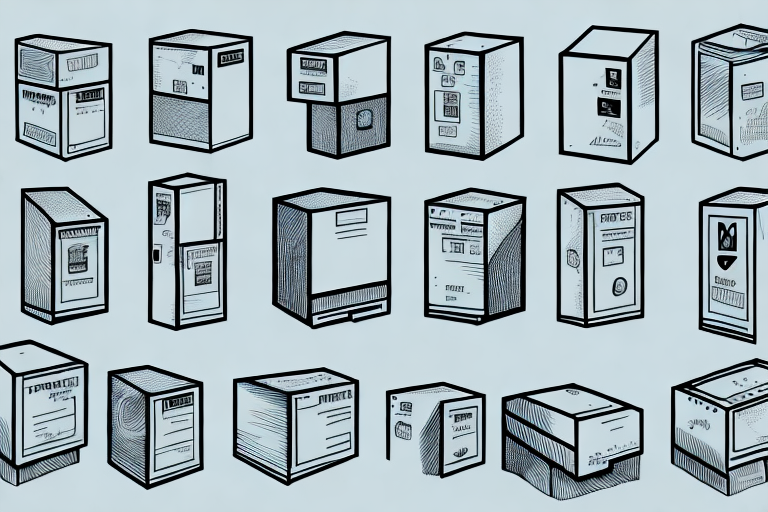Understanding UPS Boxes: Comprehensive Guide to Sizes, Prices, and Best Practices
When it comes to shipping and storage, selecting the right UPS box is crucial for ensuring the safe and cost-effective transport of your items. UPS offers a variety of box sizes and types tailored to different needs. This guide provides an in-depth analysis of UPS boxes, including their importance, types, sizing considerations, pricing factors, and best practices for use.
The Importance of Choosing the Right UPS Box for Shipping and Storage
Ensuring the Safety and Protection of Your Items
UPS boxes are engineered to withstand the challenges of transportation, safeguarding your items from damage during transit. Selecting the appropriate box size and type minimizes the risk of breakage, especially for fragile or valuable items.
According to a UPS report, using the right packaging reduces shipping damages by up to 25%, enhancing customer satisfaction and lowering return rates.
Environmental Sustainability with UPS Boxes
UPS boxes are crafted from recyclable and sustainable materials, reflecting a commitment to environmental responsibility. Utilizing these eco-friendly boxes helps reduce your carbon footprint and supports broader sustainability initiatives.
As part of its sustainability goals, UPS has diverted over 200 million pounds of recyclable packaging materials from landfills in 2023 alone (UPS Sustainability Report).
Versatility Beyond Shipping: Organizational Uses
Beyond shipping, UPS boxes serve as excellent organizational tools for both home and office environments. Their durability and variety make them suitable for storing documents, books, office supplies, and even personal items in closets or garages.
Types of UPS Boxes: Which One Fits Your Needs?
Standard UPS Boxes
Ideal for everyday shipping needs, standard UPS boxes come in various sizes to accommodate common items such as documents, clothing, and small electronics.
Heavy-Duty UPS Boxes
Designed for larger and more robust items, heavy-duty UPS boxes offer enhanced protection and durability, making them suitable for shipping appliances, large electronics, and other bulky items.
Specialty UPS Boxes
For items requiring specific handling, UPS provides specialized boxes:
- Temperature-Controlled Boxes: Essential for shipping perishable goods, ensuring they remain at optimal temperatures.
- Hazardous Material Boxes: Engineered to safely transport items that are classified as hazardous, adhering to regulatory standards.
Custom-Made UPS Boxes
For irregularly shaped or extremely fragile items, custom-made UPS boxes offer tailored dimensions and additional protective features, ensuring maximum safety during transit.
Choosing the Right Size UPS Box: Factors to Consider
Assessing Item Dimensions and Weight
Accurate measurement of your item's length, width, and height is essential for selecting the appropriate box size. Additionally, consider the item's weight to ensure it doesn't exceed UPS's weight limits for that box size.
Overweight packages can lead to increased shipping costs and potential handling issues. Refer to the UPS Shipping Policies for detailed weight guidelines.
Fragility and Protection Needs
For fragile items, opt for boxes with extra padding, cushioning, or double-walled construction to provide enhanced protection. Ensuring sufficient space for protective materials can prevent damage during handling and transit.
Cost-Efficiency and Shipping Rates
Balancing box size with shipping costs is crucial. Larger boxes generally incur higher shipping fees, so selecting the smallest box that fits your item can lead to significant cost savings.
UPS Box Sizes and Their Ideal Uses
Small UPS Boxes
Perfect for documents, small electronics, jewelry, and other lightweight items.
Medium UPS Boxes
Suitable for clothing, books, shoes, and small household items.
Large UPS Boxes
Designed for bulkier items such as kitchen appliances, large electronics, and other substantial goods.
Custom UPS Boxes
Tailored dimensions for unique or irregularly shaped items requiring specialized packaging solutions.
Pricing Factors for UPS Boxes: What Influences Cost?
Size and Dimensions
Larger boxes typically cost more due to the increased material usage.
Material Quality
Boxes made from higher-quality or specialized materials, such as double-walled or insulated boxes, command higher prices.
Customization
Custom-made boxes are more expensive due to the tailored manufacturing process required to fit specific needs.
Purchase Volume
Buying in bulk often results in volume discounts, reducing the overall cost per box.
Strategies to Save Money on UPS Boxes
- Bulk Purchasing: Take advantage of volume discounts by buying boxes in large quantities.
- Price Comparison: Shop around and compare prices from different suppliers to find the best deals.
- Standard Sizes: Whenever possible, use standard box sizes to minimize costs.
- Reuse and Recycle: Reuse boxes for storage or future shipments to extend their lifespan and reduce the need for new purchases.
Understanding Shipping Costs Based on UPS Box Sizes
Impact of Box Size and Weight
Shipping costs are influenced by both the size and weight of the package. Larger and heavier boxes typically incur higher fees.
UPS utilizes dimensional weight pricing, which considers the box's dimensions in addition to its actual weight to determine shipping costs. Efficient packaging that minimizes excess space can help reduce these expenses.
Flat-Rate Shipping Options
For certain box sizes, UPS offers flat-rate shipping options, allowing you to ship items at a fixed price regardless of weight (up to a specified limit). This can be a cost-effective solution for heavier items.
Best Practices for Packing Items in a UPS Box
- Use Adequate Padding: Incorporate cushioning materials like bubble wrap or packing peanuts to protect the item from impacts.
- Secure Sealing: Seal the box thoroughly with strong, durable tape to prevent accidental openings during transit.
- Clear Labeling: Clearly label the box with the destination address and include any necessary handling instructions.
- Avoid Overpacking: Do not overfill the box, as this can cause undue pressure on the contents and the box itself.
Common Mistakes to Avoid When Using UPS Boxes
- Incorrect Box Size: Using a box that is too small can lead to damaged items, while an excessively large box can increase shipping costs.
- Insufficient Protection for Fragile Items: Neglecting to use adequate padding can result in breakage during transit.
- Overloading the Box: Exceeding the weight limit can cause structural failure of the box and potential damage to the contents.
- Ignoring Specialized Packaging Needs: Failing to use specialized boxes for items that require temperature control or hazardous material handling can lead to regulatory issues and item damage.
Conclusion: Optimizing Your Shipping with the Right UPS Boxes
Choosing the appropriate UPS box is paramount for safe, efficient, and cost-effective shipping and storage. By understanding the different types and sizes of UPS boxes, considering factors such as item dimensions and weight, and implementing best packing practices, you can ensure your items arrive in excellent condition while managing costs effectively. Utilize the strategies and insights provided in this guide to enhance your shipping process and achieve better outcomes.








